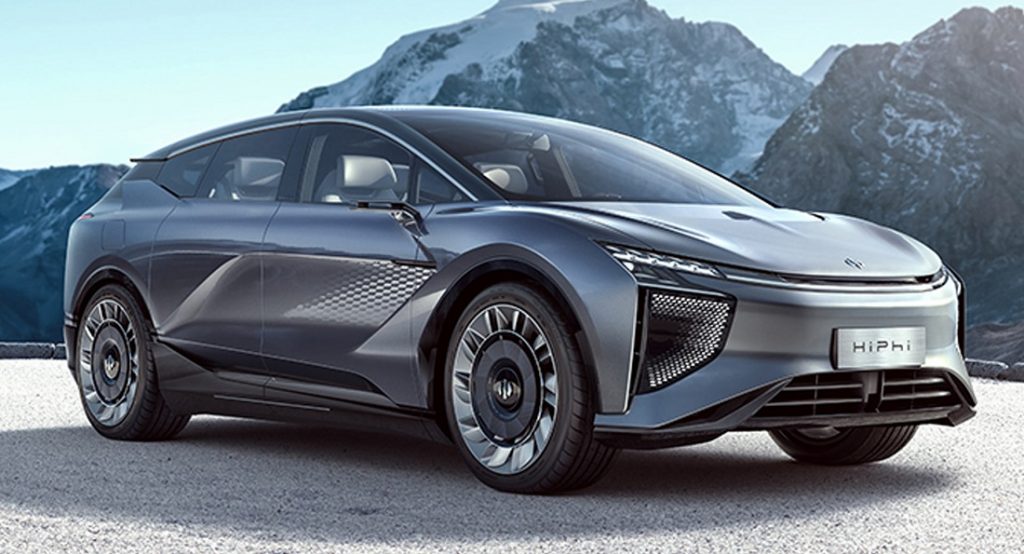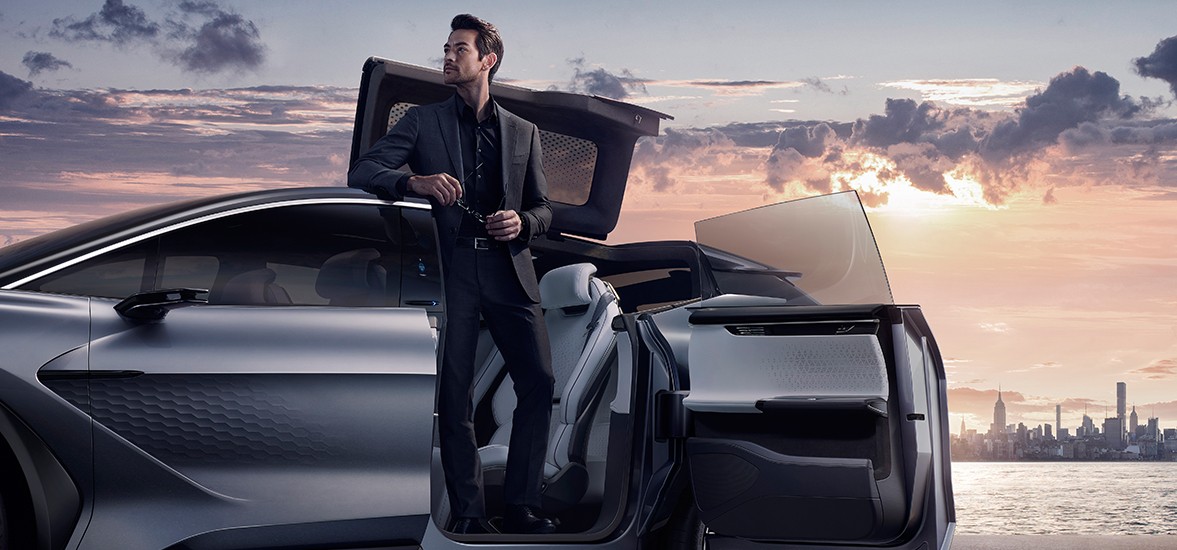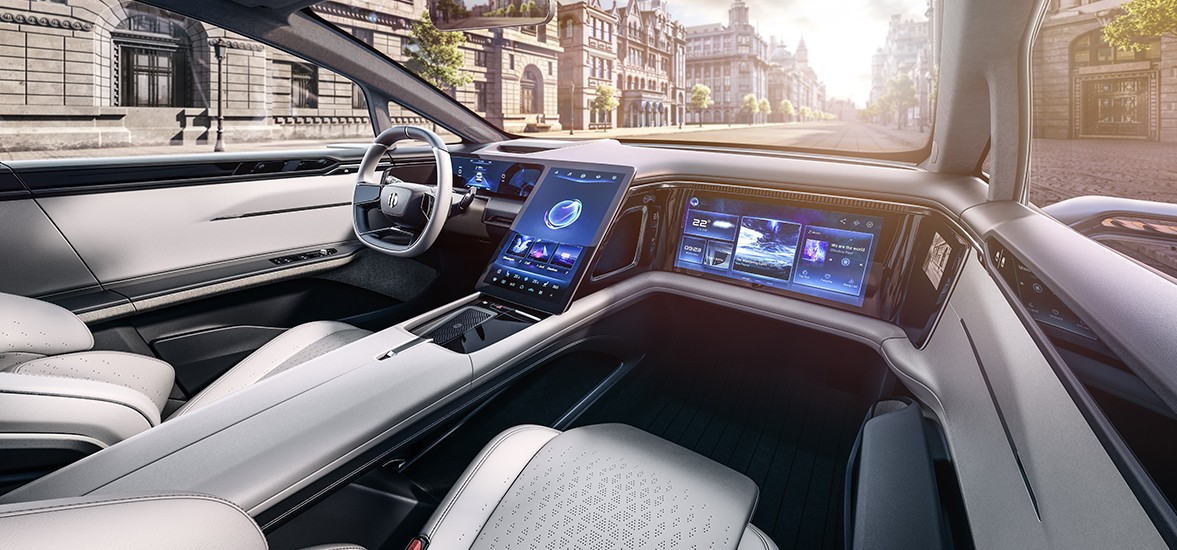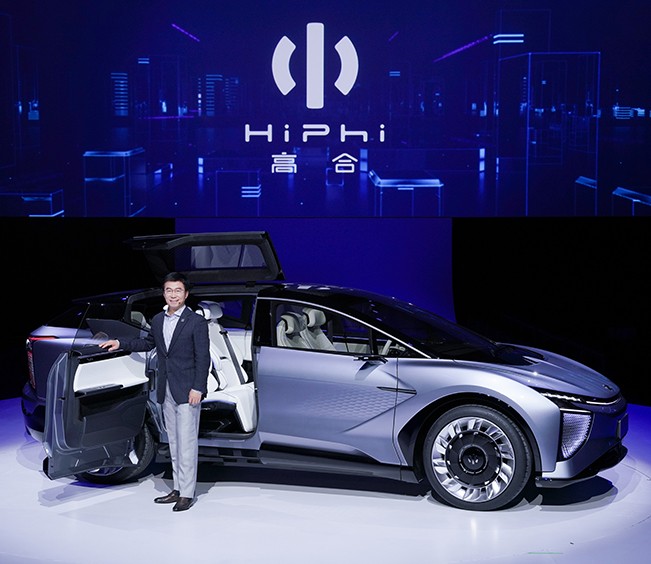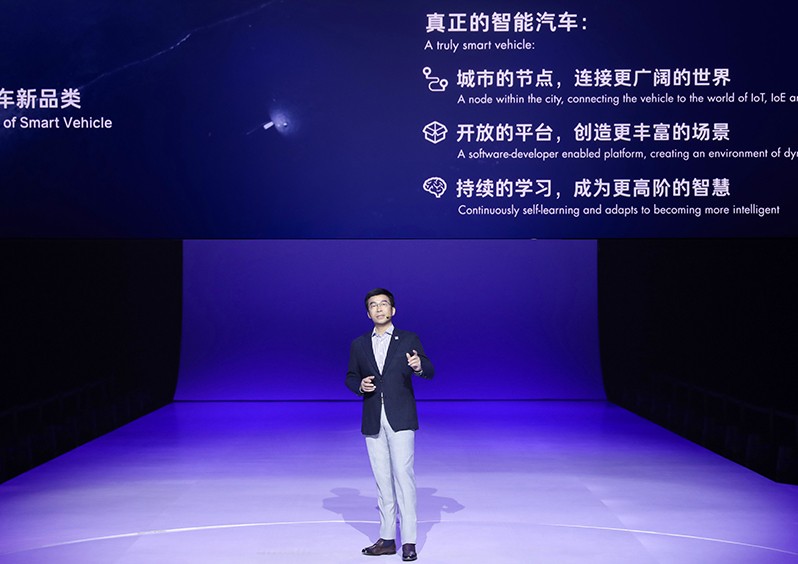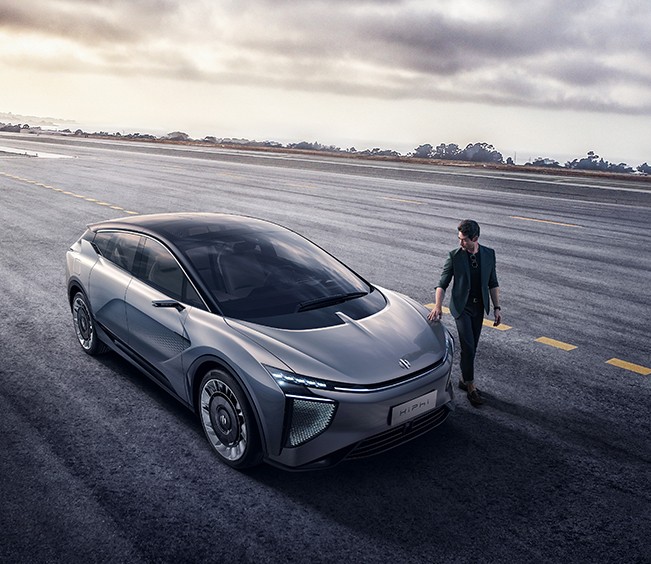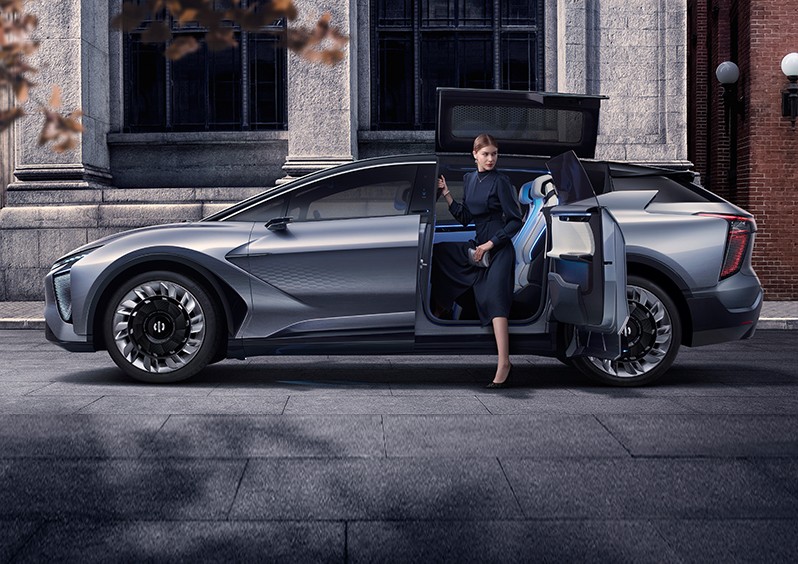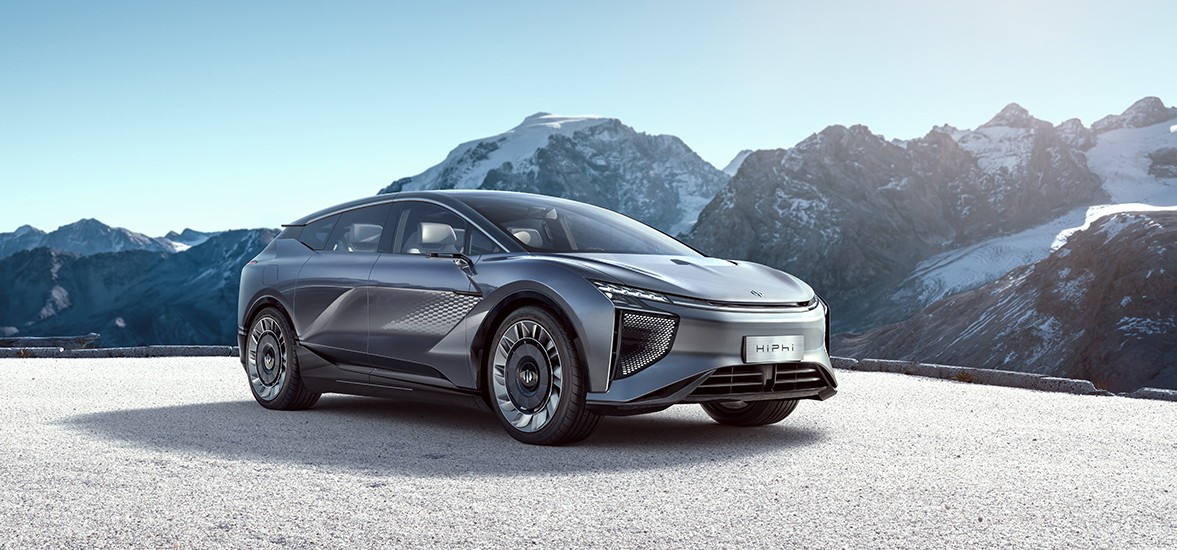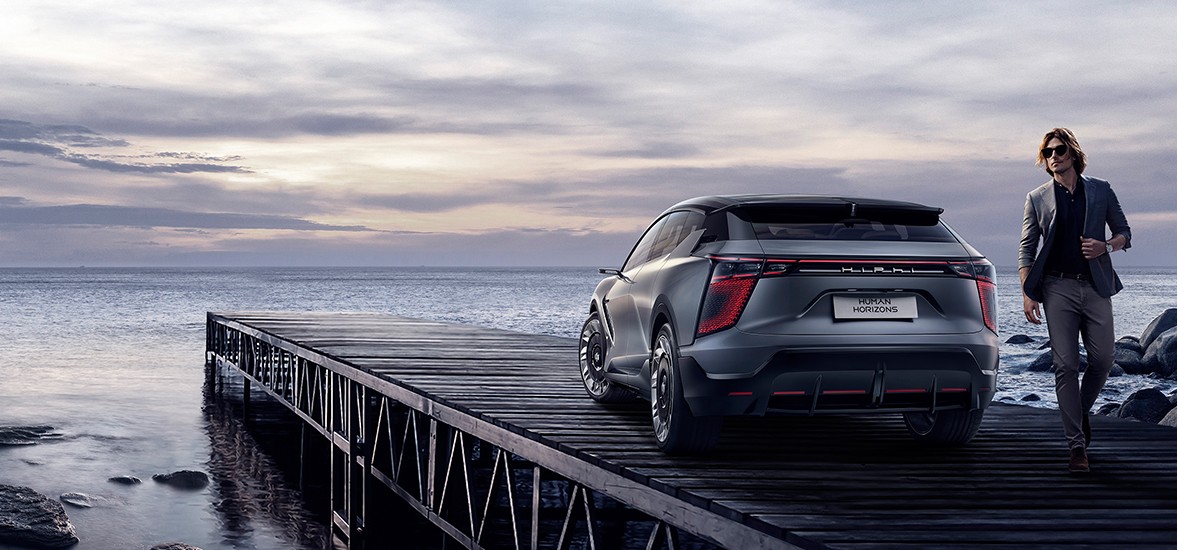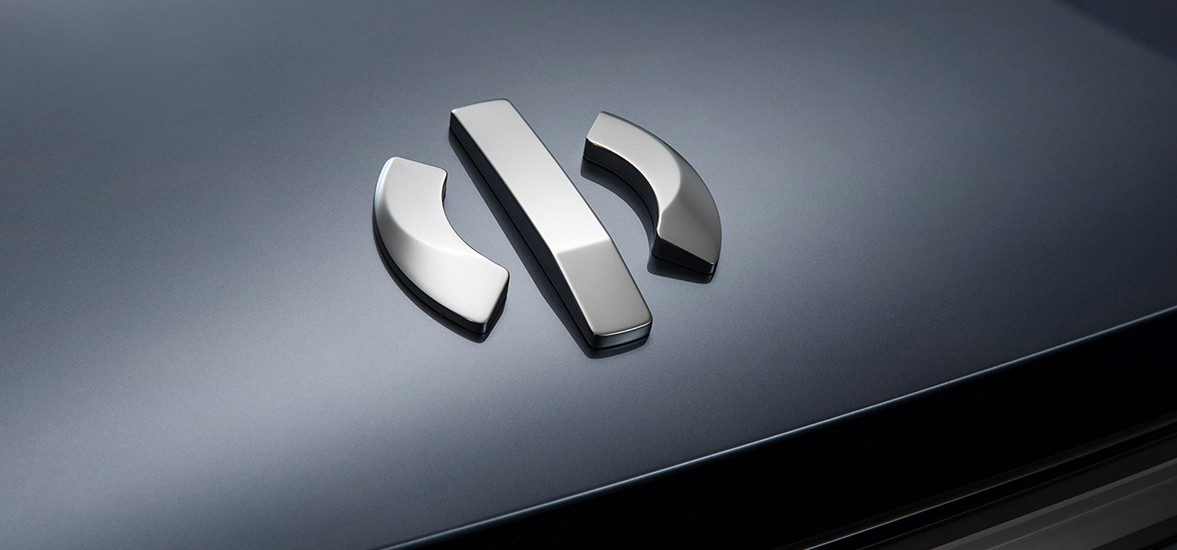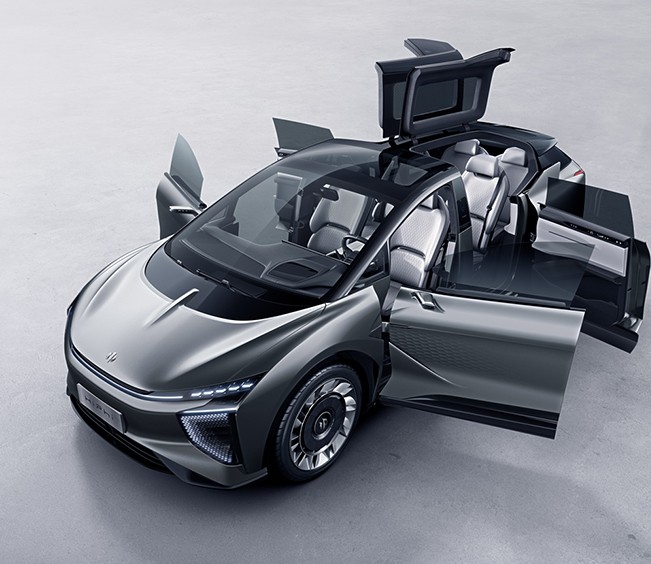Electric vehicle startups are dime a dozen and one of the latest is Human Horizons which unveiled their first production-ready prototype in China earlier today.
Dubbed the HiPhi 1, the model is billed as a “premium supercar-inspired electric SUV” which “realizes the true meaning of smart vehicles.”
Looking like a rehash of the Faraday Future FF91, the HiPhi 1 has an aerodynamic front fascia with “light processing headlights” and an “intelligent signal display.” Moving further back, the model has a rakish windscreen, a sloping roof and vertical fins above the rear wheels.
The model has also been equipped with digital side mirrors and exclusive “NT” rear doors. The latter are a mix between suicide doors and gullwing doors. As a result, the main door opens backwards while part of the roof flips upwards.
Once inside, drivers will find a stylish cabin that is packed with digital displays. They include a digital instrument cluster, a massive infotainment system and a large display for the front seat passenger.
Human Horizons didn’t go into specifics, but said the HiPhi 1 offers seating for six and promises to deliver “unrivaled levels of comfort.” The latter remains to be seen, but the cabin appears to have perforated leather seats, gloss black trim and metallic accents.
The HiPhi 1 is loaded with technology and the company says the vehicle has more than 500 sensors. The model also has a Level 3 semi-autonomous driving system, 5G V2X technology and a neural network that “consists of 4 ‘super brain’ domain controllers and 6 computing platforms connected by 1G Ethernet providing a higher transmission rate[s] than traditional CAN networks.”
The company didn’t mention performance specifications, but Autocar says the HiPhi 1 will be offered with rear- and all-wheel drive. The latter variant will reportedly have two electric motors that each develop 268 hp (200 kW / 272 PS). This should enable the model to accelerate from 0-62 mph (0-100 km/h) in approximately 3.9 seconds.
An assortment of battery packs will be available and the largest is slated to have a capacity of 96 kWh. This should give some variants a range of up to 400 miles (644 km) in the New European Driving Cycle.




